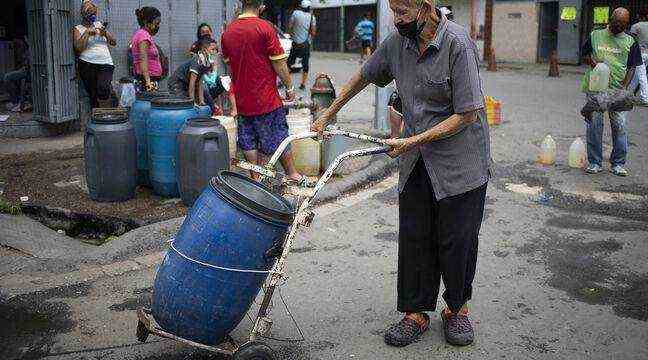The economic crisis that Venezuela is going through is terrible. Three in four residents live there in extreme poverty despite the country being a rich oil producer, according to a university study presented on Wednesday. This is based on data collected from 17,402 families residing in 22 of the 24 states of Venezuela between February and April 2021.
The National Survey on Living Conditions coordinated by the Catholic University Andres Bello (UCAB, private) determines that 76.6% of households have incomes that do not cover their food needs. Above all, 94.5% of households live below the poverty line of $ 1.9 per day. On the other hand, the figures of the study contrast with those officially presented to Parliament and which show 17% of people living below the poverty line and 4% living in extreme poverty.
Many departures from the country
“We have reached a poverty ceiling” while extreme poverty continues to increase, explained sociologist Luis Pedro España during the presentation of the survey. In 2019-2020, extreme poverty was 67.7% and 91.5% of people lived below the poverty line. Consequence of these very bad figures: the population is now around 28.8 million inhabitants while Venezuela has lost about 5 million people who have left the country.
Once considered one of the richest countries in South America thanks to its oil, Venezuela has seen its gross domestic product (GDP) fall by 80% since 2013, in particular due to the drop in its production and the price of black gold, but also mismanagement and the political crisis. The country is in the throes of hyperinflation with a completely devalued local currency which has given way to the dollar.
The salary often lower than the costs to go to work
According to the study, only 50% of Venezuelans of working age work. Women are the most affected with only 33% working. With the gasoline shortage and the restrictions due to the pandemic, a “mobility crisis” particularly affects the working population looking for work. “The costs of getting to work are starting to be higher than the remuneration received” for a job, warns Luis Pedro España. In Venezuela, the minimum wage with food stamps – which many government officials receive – barely exceed $ 2, which does not cover transport costs, even though average wages in the private sector are around $ 50 a month.
Finally, according to the university survey, only 65% of the 11 million young people of study age (3 to 24 years) are enrolled in educational centers, down 5%. And 17% of 16-24 year olds are enrolled in university.

